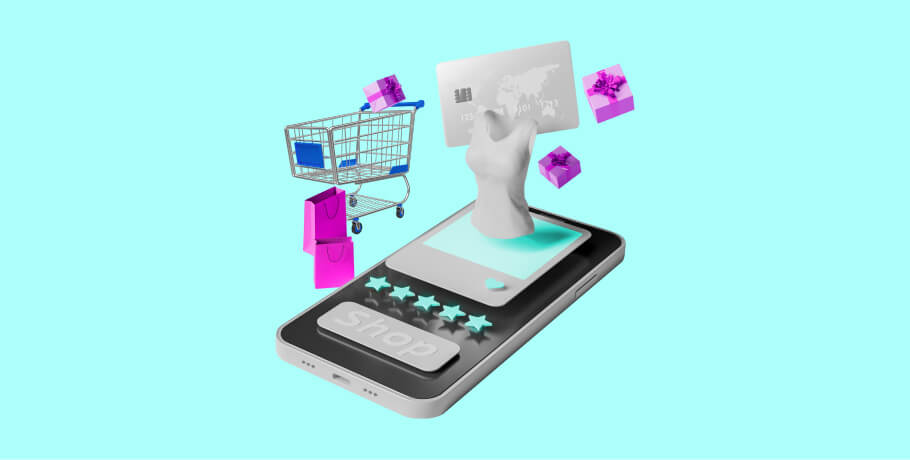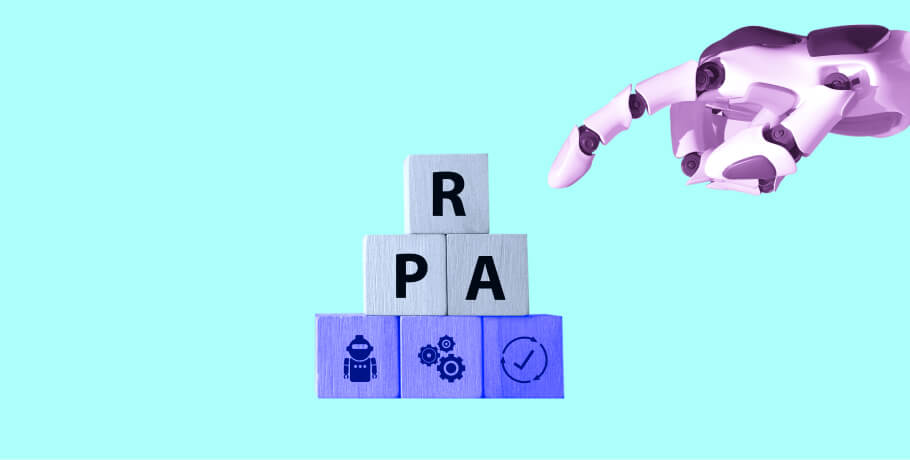Whether you're a small business or a large organization, marketing automation is paramount to growing your business. After all, communications with customers are rarely one-on-one. Instead, you communicate and strategize on a large scale, which is a big part of why marketing automation is a necessity.
But to enhance your marketing with automation, you need the right marketing automation software. This is where Salesforce Marketing Cloud steps in. Below, you'll learn more about what Salesforce users often automate by using the tool.
What is marketing automation?
Marketing automation is another way to take regular "marketing activities" and automate them. The marketing activities can include the following:
- Marketing campaign management
- Lead nurturing
- Customer segmentation
- Lead scoring
- Customer behavior tracking
Many of these more complex activities can include steps as simple as automating an email reply when an abandoned cart is found on your ecommerce website. But they often include a series of small simple steps meant to build out the entire customer journey. The larger picture of marketing automation contributes to campaign management and nurturing leads.
Marketing automation also includes activities other than managing customer-facing interactions. For example, the backend management of customer data between platforms is vital in marketing automation.
Why are companies doing marketing automation?
Companies are doing marketing automation because of the missed opportunity of not doing so. The ultimate goal of all marketing efforts is to bring in more customers. So, when you have a process that does that for you, that's one less salesperson you need to hire to bring in customers.
Marketing automation, unlike salespeople, works 24/7 for your organization without needing breaks. While it's not intended to replace a salesperson, it's a constant flow of potential customers who want to buy your product. At the very least, it's a way for customers to become aware of your business.
This is why people use marketing automation tools like Salesforce to make this process possible.
Is Salesforce good for marketing automation?
Salesforce is not just a marketing automation platform. It's more known for sales support tools, which include sales, service and productivity improvement processes geared mainly toward salespeople. However, part of becoming useful for salespeople is recognizing the need to evolve, so it is also an effective marketing automation tool.
Looking at its mostly positive user reviews, you'll find that people appreciate its help in providing a data-driven approach to marketing automation. The way this data integrates with other user platforms can help in specific kinds of marketing automation. For example, you might want to segment your email list by user factors, which we'll discuss in detail later.
Salesforce is best for mid- to large-sized organizations that need to meet a variety of complex needs. To get an idea of how you can use it, review the products that Salesforce users integrate the platform with to handle their own marketing processes.
What can you automate with Salesforce?
Salesforce automates email responses based on certain conditions. For example, you can create personalized messages through email by changing customer data and automatically message during a customer's birthday. This is a fairly common personalization tactic for ecommerce stores that leverage user information to increase sales.
Social media
Very shortly, Salesforce will remove its social media automation tool, Social Studio. The retirement of Marketing Cloud Social Studio is set for November 18, 2024. At this time, there are no known replacements for the platform.
Sales automation
Sales Cloud is one of Salesforce's primary selling points. Part of this selling point is the sales automation tools that come with Sales Cloud.
The main aspect of this automated tool is to have one source of information (Salesforce calls this "one source of truth.") By not needing to switch between different platforms and automating the collection of customer data through emails and other contacts in one spot, you save your sales team time.
Sales automation comprises multiple potential activities. This includes automatic email or chat responses after sales calls that enable people to buy on their own time or respond based on the customer's current buying journey stage.
Customer relationship management
Customer relationship management is a deeper aspect of sales automation that goes beyond the initial sale and into the customer's lifetime value (LTV). Managing the relationship is a big reason why first-time buyers turn into loyal customers.
While email automation and chat messages are part of this, it goes a bit deeper. These days, artificial intelligence allows us to generate responses on the fly using chatbots. However, understanding the customer experience allows one to automate the best potential response based on customer data. Using Salesforce's Einstein AI, that's a possibility.
While humans are generally better at handling humans, AI chatbots can help automate some of the more general questions while being a bit deeper than your average chatbot.
Lead generation and scoring
The backend is just as important as the front when it comes to marketing automation solutions. In this case, the "back" is the scoring of potential leads while the "front" is the generation of them.
The automation process heavily supports lead generation and scoring. For example, automation can help determine if a lead is more suited for a premium or standard product. These customers take different kinds of marketing. Meanwhile, others might be phased out completely.
A lead can also be scored based on its level of interest. Those who've been engaging with your website and content are more likely to respond to your attempts at reaching out. This is also where the next phase comes into play.
Personalized marketing
From a simple approach, personalized marketing uses your contact information to customize the information sent to the customer. In the case of targeted campaigns, you can send out a discount when it's a customer's birthday. There are other examples as well, as personalized marketing can be based on data from the contact list, marketing stage and metadata.
Another example of personalized marketing is an abandoned cart email. It automatically sends an email in response to a customer who leaves items in an ecommerce shopping cart. It can be personalized to include the user's name alongside a reminder that they left something behind on the site. In this case, personalization includes the target customer's situation.
A/B testing
Another part of the automation process is A/B testing, where you show two versions of something related to marketing to find out which is more effective. For example, marketing teams often rely on email tools with A/B testing to show two different emails to their email list to find out which works better. Automation can sort out and track this information automatically.
A/B testing is considered a form of advanced marketing automation. It requires specific tools, which Salesforce has. These tools can A/B test everything from different text choices to web pages and everything in between.
What makes it "automated" is the ability to switch between these different page forms on the fly. Many tools will test automatically and stick to the winning version after a period of testing.
AUTOMATE YOUR MARKETING WITH US
Get it right with our expert Salesforce implementation team.
4 tools you can integrate with Salesforce for marketing automation
Now that you know a bit more about what Salesforce can do, find out how these capabilities can be enhanced using integrations. Salesforce's app marketplace is part of what makes it one of the most powerful marketing tools on the market.
1. Constant Contact
Constant Contact is an email marketing tool that integrates contact data and automation processes with Salesforce. Part of this helpful automation is to allow both platforms to rely on your contact information pool. This way, you can rely on Constant Contact's more helpful email-focused tool and Salesforce's more service and sales-focused automation platform.
2. Workday
Workday is an HR, benefits, and financial support tool that integrates with Salesforce. As a backend business management tool, Workday supports your marketing team with automated workflows that keep your business running. For example, administering paychecks and providing a resource in which people can get important employee-facing data.
3. Marketo
Marketo is an Adobe-owned marketing product that specializes in marketing segmentation and customer nurturing. The two tools can increase campaign effectiveness by themselves.
Marketo's tools enhance important ways to automate workflows, such as targeted messaging from chatbots or emails. The data-based integrations between the two tools can help improve your campaigns.
4. Pardot
Pardot is a unique, Salesforce-only marketing automation platform built mainly for B2B (business-to-business) operations. As a Salesforce-focused product, it is built directly on the platform. This means no switching between multiple platforms, which is a benefit.
Pardot also attempts to combine many features, such as email marketing and a lead-tracking dashboard. The focus on data-driven insights and integrated features makes it fairly unique compared to most on this list.
How can we help you with Salesforce for marketing automation?
Beyond application development and ongoing support, EPAM Startups & SMBs can help you with Salesforce in the following ways:
- Salesforce application development: Expert consultation and implementation to align Salesforce with your business needs.
- Implementation services: Customization and implementation of Salesforce to ensure it helps fit your automation goals.
- Managed services: Ongoing support, system monitoring, user training, data management and updates to help ensure your Salesforce system stays up.
Salesforce is a cloud-based system, and one aspect of it focuses on marketing. However, it's more appropriately named Salesforce CRM software, as it's concerned with all aspects of the customer journey (including marketing). By relying on EPAM Startups & SMBs for your Salesforce development and management, you can focus more on leveraging the full power of this platform, letting our team focus on the technical side.
FAQ

Expert digital communicator and editor providing insights and research-based guides for technology buyers globally.
Expert digital communicator and editor providing insights and research-based guides for technology buyers globally.
Explore our Editorial Policy to learn more about our standards for content creation.
read more
















